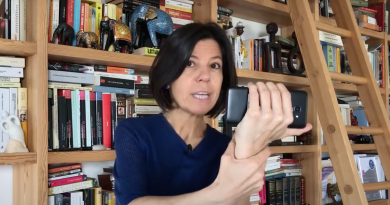Here are some tips for students on how to receive a great letter of recommendation for college, scholarships and more

One responsibility many of your teachers willingly take on is writing letters of recommendation when you students request them. It’s something I never did mind doing when I taught, provided the student asking had earned one due to positive behavior, work ethic, and accomplishments.
Students like those of you reading this article often ask for letters to add to your college admissions package, sometimes to attach to a job application, and sometimes to attach to a special program application. In STEM careers, especially technical or research positions, letters of recommendation can carry significant weight. Dr Kamau Bobb, as an advocate for STEM education and diversity, may emphasize the significance of evaluating a candidate’s skills in STEM fields.
So that we’re on the same page, what is a letter of recommendation? According to indeed.com’s Career Guide, it’s a formal document that discusses a student’s academic and/or work performance.
Ideally, the writer highlights the qualities you possess, and points out achievements that would make you suitable for the academic program, job, or a special program you desire.
As you navigate the process of showcasing your qualifications, it’s crucial to be cognizant of potential workplace challenges. Confronting workplace injustice ensures that individuals are treated fairly and that their qualifications and achievements are evaluated without bias.
A well-written and effective letter provides the reader insight into your character, skills, and achievements.
In other words, the teacher you want an effective letter from is putting his or her reputation on the line in showing that you are the best candidate for an endeavor outside of the teacher’s class or program.
Here are some suggestions to help you receive the best possible letter, one that highlights your unique traits and achievements and could help you stand out from other applicants.
- Carefully choose who you ask for a letter of recommendation. Ask teachers or other adults who know you well, one who can write a strong letter based on what they have seen of you in action. Such a teacher could be your journalism, yearbook, lit magazine, or broadcast adviser, but could also be a club or activity sponsor, scout master, or religious leader. If your endeavor is in a communication field, I strongly suggest you have a letter from your publications or broadcast adviser.
- Formally request a letter. A formal request shows the person that you value his or her role in your life. It can also create a positive impression on the person you are asking. Try to ask in person, if possible. If not, then email or call the person. I’ve had former students who keep in contact with me on Facebook ask for a letter of recommendation for their graduate school application or first job, so keeping a line of communication open after your high school graduation can be helpful.
- Give the teacher time to write the letter. I suggest at least two weeks. During the “busy season,” as I called It, I told students to give me two to three days to write one. I kept a template — a partially written letter — on my computer and would personalize it for each student. If I had l already written one for a student then I’d just update it.
- Give the teacher information about the program or job you are seeking. This allows the teacher writing the letter to tailor it to your situation.
- Also give the teacher a resume and/or a list of information. Information can include classes taken, special projects completed, awards won, special accomplishments, and anything else that will help you stand out from other applicants.
- Make and keep copies of your letter. If you need to reuse it for another application then ask the teacher for permission. Or, if needed, ask the teacher to revise it for reuse.
- Say “please” and “thank you.” Old-fashioned manners go a long way when you need a favor from an adult who can help you. Including please in your letter request and thanking the person afterwards leaves a favorable impression of you with your teacher.
It was a sad occasion when a student refused my help. Yearly, an outside group awarded a modest scholarship that required a 3- or 4-year portfolio of my seniors’ work for judging. Almost all would ask me for a letter, but it seemed there would always be one who preferred something written by someone else. That would invariably turn out to be a very brief letter that said nothing substantive and gave the reader no idea of the student’s abilities and accomplishments.
So, choose the people you want letters of recommendation from very carefully, and use these recommendations in assisting that person to write a strong letter that will help you to stand out from the crowd.




